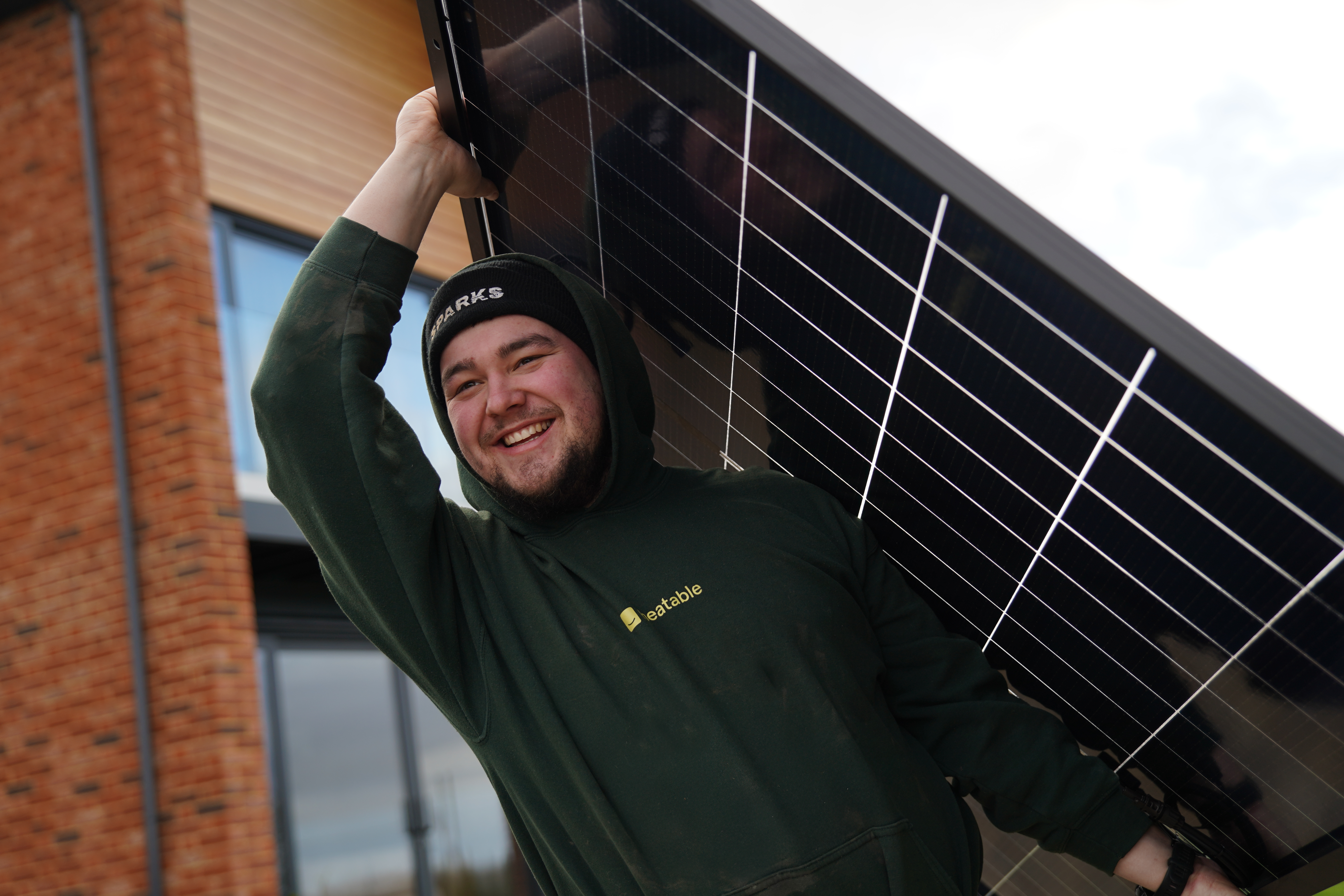There are plenty of brands to choose from when it comes to solar panels, with familiar tech brand names mixing with relative unknowns.
Much of your choice will depend on which installers you choose to go with, as they will have brands they prefer to buy from, if only to make use of bulk purchasing.
The numbers you will be looking for are the price, warranty, efficiency – up to 25 per cent or so is possible, degradation (they age, albeit slowly) and power output.
There’s plenty of competition in the solar market. A boom in commercial panels used in solar farms, which power up to 5 per cent of the UK grid, means that the technology has come on leaps and bounds in recent years as more money is poured into developing better and cheaper panels.
There is also a big difference between older, cheaper panels and newer ones, which will cost more but yield more power and generally offer a longer life. After 30 years, the amount supplied can drop to less than 80 percent of its advertised supply, but high-end models can offer more than 90 per cent.
When choosing a solar panel, it’s best to weigh up the full cost of installation as well as the panel cost, since you’ll probably need to pay for the hire of scaffolding and the purchase of other equipment to connect your shiny new panels to your home electricity mains.
Once you have an idea of what the full cost will be, you’ll have a better idea of how good a plan it may be to go for cheaper cells. Ones that last longer and provide more power may be worth it to avoid renting more scaffolding in 10 years for replacements.
DMEGC Infinity
- Price, installed: £795 to £1,195 per kW
- Efficiency: 23 per cent
- Wattage per panel: 440-460W
- Type: N-Type
- Made in: China and Indonesia
- Degradation: 87.4 per cent after 30 years
- Warranty: 25 years for the product itself, 30 years for the degradation figure
China’s DMEGC, part of the Hengdian Group conglomerate, could be the biggest energy company you’ve never heard of. It’s shipped more than 50 gigawatts of solar panels since its founding in 1980. This model provides a good compromise between power output, long warranty and decent power longevity, offering more than 87 per cent of its box-fresh output after 30 years.

REA Fusion2 Solar Panel
- Price, installed: £900 – £1000 per kW
- Efficiency: 24 per cent
- Wattage per panel: 450W
- Type: N-Type
- Made in: Australia
- Degradation: 90.3 per cent after 30 years
- Warranty: 25 years for the product itself, 30 years for the degradation figure
This is the best panel for efficiency and maintaining power over the long run. Depending on how many cells you buy and your other fitting costs, it may well be the most expensive option however. Made in Australia, the manufacturers say these cells are built to last.
Aiko Neostar
- Price, installed: £1250 per kW
- Efficiency: 23 per cent
- Wattage per panel: 460W
- Type: N-Type
- Made in: China
- Degradation: 88.90 per cent after 30 years
- Warranty: 25 years for the product itself, 30 years for the degradation figure
China has invested billions of pounds in making cheap solar cells, and the country’s Aiko Neostar range offers amongst the best power output, as well as a long warranty and very respectable efficiency
Jinko Tiger
- Price, installed: £1250 per kW
- Efficiency: 22 per cent
- Wattage per panel: 440W
- Type: N-Type
- Made in: China and Malaysia, US and Vietnam
- Degradation: 87.40 per cent after 30 years
- Warranty: 25 years for the product itself, 30 years for the degradation figure
Founded in 2006, Jinko has grown to be another vast Chinese player in solar panels.
Again, the long warranty, slow ageing rate and good power output make this a good all-round choice.
Sharp NU-AF
- Price, installed: £600 per kW
- Efficiency: 19 per cent
- Wattage per panel: 370W
- Type: PERC
- Made in: Thailand and Vietnam
- Degradation: 81 per cent after 30 years
- Warranty: 10 years
Probably the most recognisable brand on the market, and also the budget option, Sharp’s NU-AF model uses cheaper PERC technology rather than the N-Type process that dominates the rest of our list.
This is the best budget buy, but you compromise a little in terms of the warranty, efficiency and the power output. The cells also age quicker than their competitors, but those with roof space to spare might decide to plump for them.

